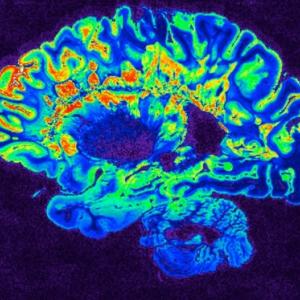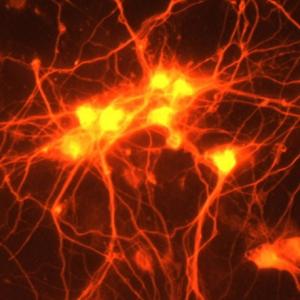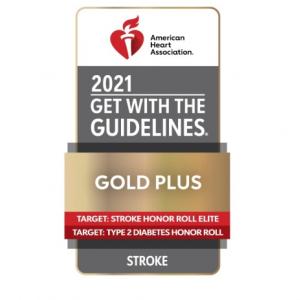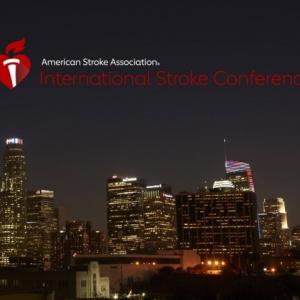
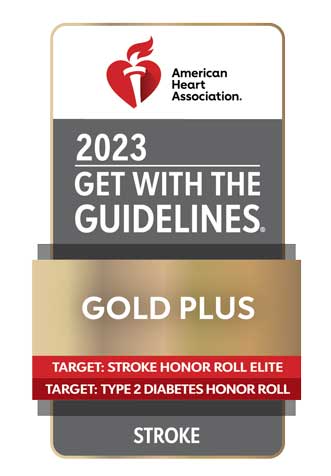
The Duke Comprehensive Stroke Center, certified by the Joint Commission, is among a select group of hospitals that meet the highest standard of stroke care in the United States. Originally named the Duke Center for Cerebrovascular Disease, the Center was founded by Albert Heyman, MD, in 1966 as a collaborative effort of the NIH and the Veterans Administration.
The Comprehensive Stroke Center is part of Duke University Hospital, which has received the American Heart Association’s (AHA) Get With The Guidelines®-Stroke Gold Plus Quality Achievement Award for the past four years. This award, the highest that the AHA offers, recognizes commitment to providing the best possible care for stroke.
Based in the Department of Neurology, the Comprehensive Stroke Center has expanded to develop affiliated programs and includes faculty from an extensive list of clinical departments, research laboratories, and university centers within the School of Medicine and Duke Health System. These include affiliations with the:
- Duke Clinical Research Institute
- Duke Center for Genomic and Computational Biology
- Duke Multidisciplinary Neuroprotection Laboratories
Research activities range from laboratory studies based on molecular biological approaches to neuropharmacology, neurophysiology, developmental neurobiology, receptor biology, cell biology, and behavioral recovery. The affiliated Multidisciplinary Neuroprotection Laboratories focus on understanding the pathophysiology of stoke and acute brain injury and to developing novel treatments.
Duke Neurology Research Round Up, July 2022
This June, members of the Duke Neurology Department contributed to 12 new peer-reviewed journal articles as well as two new book chapters. Among other findings these studies uncovered retinal differences that may one day act as early biomarkers for cognitive impairment, population-based studies that will improve treatment for stroke and other conditions, and investigations of hydrogel scaffolds as potential therapies.
Duke Neurology Research Round Up, June 2022
Members of the Duke Neurology Department contributed to 13 new peer-reviewed journal articles this May, advancing our understanding of how viruses that kill cancer cells may be used against brain tumors, the optimal treatments for various types of stroke, the origins of Parkinson’s disease, and more. Read the paragraphs below for summaries of our research from the past 31 days, as well as links to the complete articles themselves.
Hospital Neurology
Duke hospitals receive AHA’s top award for comprehensive stroke care
Duke University Hospital and Duke Raleigh Hospitals have received the American Heart Association’s (AHA) Get With The Guidelines®-Stroke 2021 Gold Plus Quality Achievement Award. This award, the highest that the AHA offers, recognizes commitment to providing the best possible care for stroke. Both Duke University Hospital and Duke Raleigh Hospital have received this award from the AHA for the past three years.
APP Spotlight: Kimberly Holzmacher, MSN, AGPCNP-BC
An eight-hour shift can be exhausting on its own, but for Kimberly Holzmacher, MSN, AGPCNP-BC, her workday is only getting started. As one of our newest advanced practice providers (APPs), Holzmacher typically starts work on our Stroke Service before 5 a.m. and often works until 8 p.m. or later. For this week’s “Spotlight” interview, Holzmacher talks about why she’s been drawn to helping patients with stroke since nursing school, how this work compares to working in the Preston Robert Tisch Brain Tumor Center, and the joys and difficulties of her job.
Eye strokes: Earlier ED referral can reduce impact of sudden vision loss
A recent study led by Duke vascular neurologist Brian Mac Grory, MB, BCh, BAO, examined treatment for central retinal artery occlusion (CRAO or “eye stroke”)—a rare type of stroke characterized by the sudden onset of painless, usually permanent vision loss in one eye.
Mac Grory notes that while most strokes present with weakness, facial droop or difficulty speaking, eye strokes are hard to recognize and treat in a timely manner because the only symptom may be sudden blindness in one eye.
AHA offers guidance on management of eye stroke
While most people think of strokes affecting the brain, they can also affect the eye. Central retinal artery occlusion (CRAO) is a rare form of acute ischemic stroke that occurs when blood flow is blocked to the main artery of the eye. It typically causes painless, immediate vision loss in the impacted eye, with fewer than 20% of people regaining functional vision in that eye.
Mac Grory wins AHA/ASA 2020 Stroke Progress and Innovation Award
Brian Mac Grory, MB BCh BAO, has won the American Heart Association/ American Stroke Association's 2020 Stroke Progress and Innovation Award (first place) for his research examining treatment for central retinal artery occlusion (CRAO), a rare type of stroke affecting the eye. The study performed by Mac Grory and colleagues found that “clot-busting” medications, if given within 4.5 hours after the eye stroke, improved the chances of vision recovery for patients with CRAO.
Duke Neurology at ISC 2020: Highlights from Los Angeles
The AHA/ASA's top award for all three of our hospitals, as well as more than a dozen new lectures, abstracts, and presentations are just some highlights to come from Duke at the 2020 International Stroke Conference in Los Angeles this week.
New study pinpoints timeline for safe administration of IV tPA for prior stroke patients
New research indicates intravenous tissue-type plasminogen activator (IV tPA) only increases the risk for brain hemorrhage in patients with previous stroke if the prior occurred within the past two weeks. This retrospective observational study, by Shreyansh Shah, MD, (photo), Ying Xian, MD, PhD, and colleagues, appears in Circulation Cardiovascular Quality and Outcomes.
